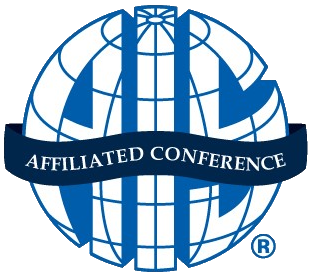On Westphalians and Rhinelanders
On Westphalians and Rhinelanders
In times of German carnival, the old (and probably overestimated) debate of the clash between Rhinelanders and Westphalians is warmed up every year. Rhinelanders are called people from the region around the big cities along the Rhine river, such as Cologne, Düsseldorf, and Mainz. Westphalia includes the regions around cities like Münster, Paderborn, and Dortmund. After World War II, the two regions were merged to the federal state of North Rhine-Westphalia. Before, they had been politically separate as different districts of the kingdom of Prussia. During that time, Münster has been the capital of the district of Westphalia.
The big cities along the Rhine (Cologne, Düsseldorf, and Mainz) are Germans carnival strongholds. On Rose Monday, they organize huge celebrations with parades and dancing, usually accompanied by a heavy drinking general public in fancy costumes. In Münster, there is also a quite big parade on Rose Monday. However, Rhinelanders usually do not take it seriously. In their view, Westphalians and carnival are two things that are mutually exclusive. Frankly speaking, Rhinelanders assert that Westphalians are rather silent and not able to have fun at all. A famous joke goes like this:
A Rhinelander meets a Westphalian with a parrot on his shoulder. The Rhinelander asks: “Can he speak?” The parrot answers: “How the hell should I know?”
In contrast, Westphalians naturally oppose to this view by saying that Rhinelanders talk way too much and are always happy without any substantial reason. In fact, Rhinelanders occasionally start singing “Viva Colonia” – all over the world, unrequested, unappreciated, and without any prior notice. “When a Westphalian starts to be funny – even at a very rudimentary level, the Rhinelander lies drunk on the ground already”, said once Westphalian comedian Rüdiger Hoffmann.
Beside of the Rhineland and Westphalian rivalry, there are a lot of inner-regional clashes between Rhinelanders (Düsseldorf vs. Cologne) and Westphalians (Bielefeld vs. Everybody else). Key issues usually include the quality of the local beer and the performance of the local football team.
Now, what has that to do with you as non-Westphalian researcher?
Münster lies in the heart of Westphalia and people in Münster are usually happy to live there. Hence, when you are in Münster for ECIS 2015, they will appreciate your Westphalian cultural know how. Here is some ultimate advice:
- Many people in Germany have a higher identification with their home region or the city they are currently living in than with the nation as a whole. Exploit that fact for placing good jokes!
- Small talk with Germans – especially when from Westphalia – can get a bit lengthy. Be patient and appreciate that they talk with you at all!
- Rhinelanders will laugh about any joke you do – whether they are good or not. Do not assume that the person actually likes you or your jokes.
- Moreover, when you next check for demographic differences in your empirical surveys, you may consider sampling Rhinelanders and Westphalians to go deeper into the matter.
Any more advice? Please let me know via Twitter or E-Mail.
About the author: Sebastian Köffer

Sebastian Köffer works as research assistant at the European Research Center of Information Systems in Münster (Westphalia). He was born in Dinslaken (Rhineland) and has lived for several years in Paderborn (Westphalia) and Düsseldorf (Rhineland). His Twitter account is @koeffi.
If you would like to know more about the author, check out the author's website.

